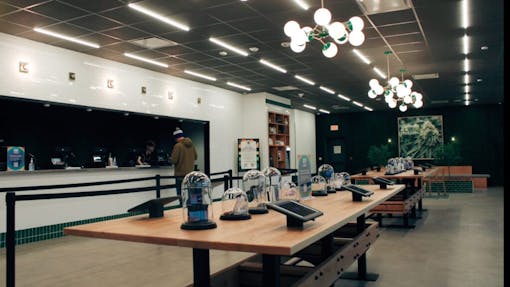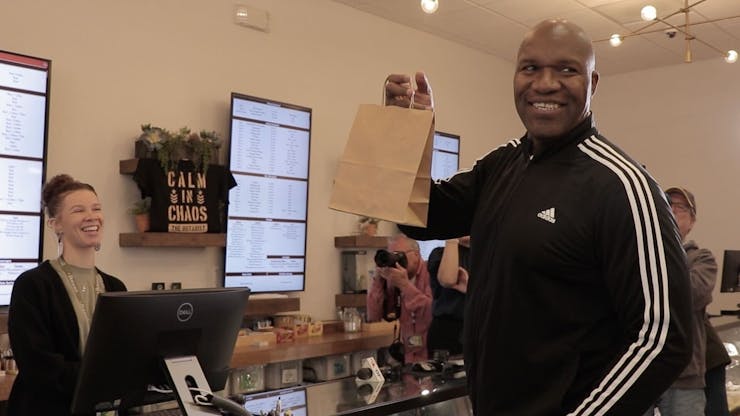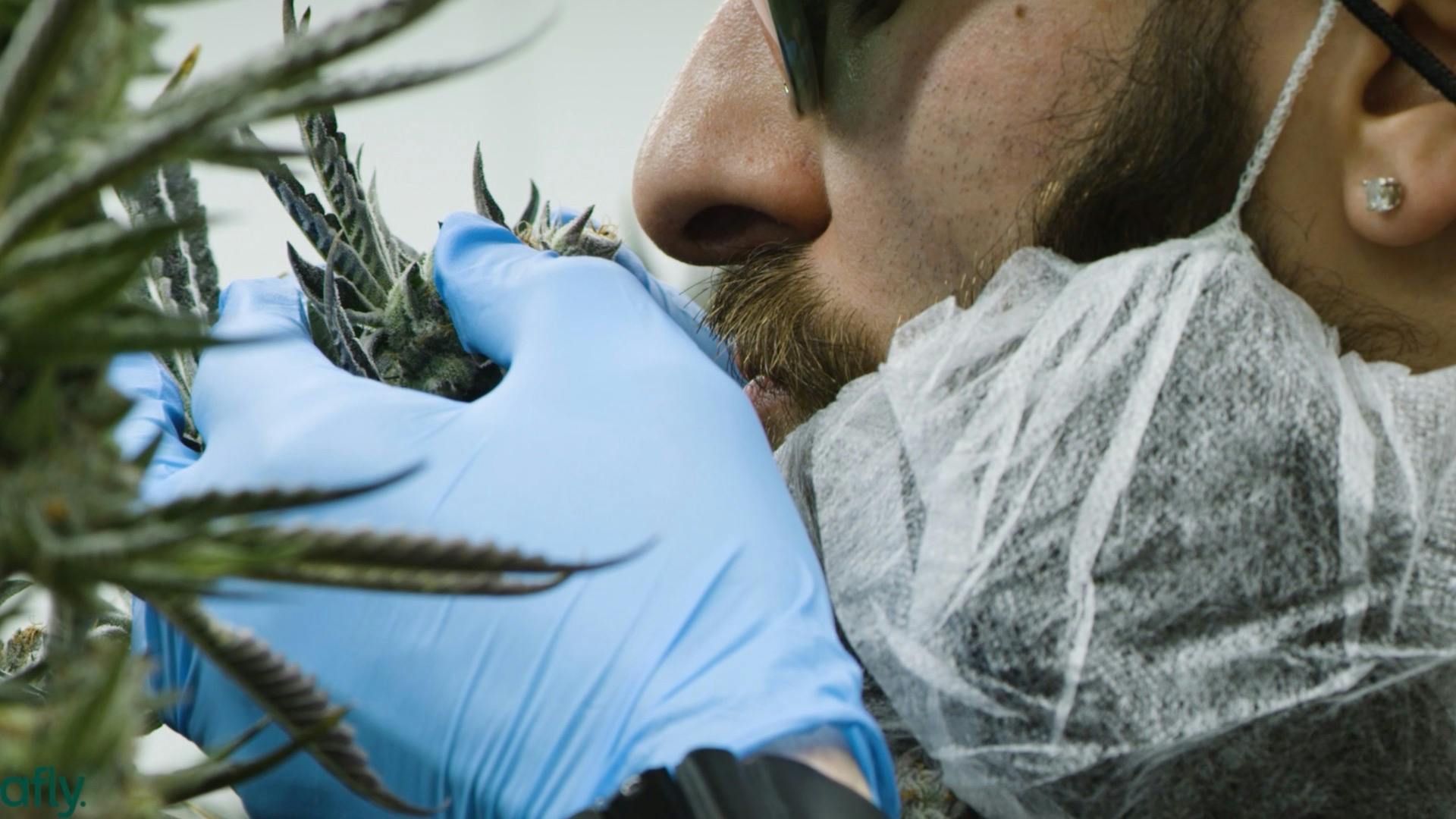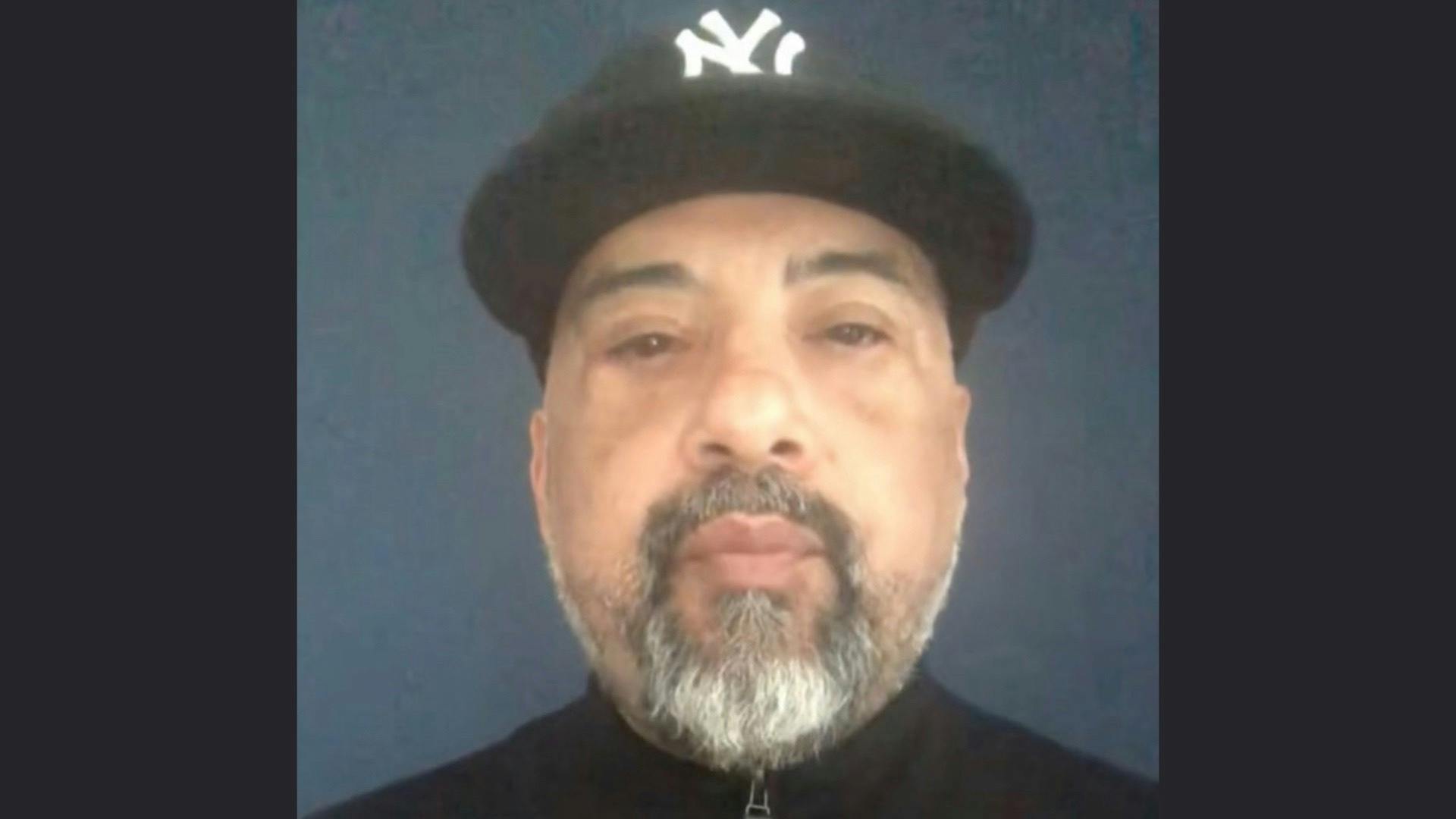More than 12,000 customers showed up for day one in NJ, but many are still waiting for edibles, homegrow, and better prices
After one week of legal weed sales in New Jersey, the Garden State is raking in the green.
Day one of adult-use cannabis brought in $1.9 million, or about $153 per customer. That might sound low compared to New Mexico’s $2.7 million opening earlier this month. But New Mexico had 118 stores ready to sell on day one; New Jersey had 12.
The CRC reported yesterday that the 12 dispensaries open to adult-use consumers on April 21 served 12,438 recreational buyers without interrupting access for medical patients.
Just last month, regulators estimated the state was 100,000 pounds short of legal supply needed to meet projected demand. Thankfully, that wasn’t the case this week. But residents and stakeholders still have questions about how the CRC is rolling out this explosive new market.
Why are edibles still illegal in New Jersey? What’s the latest on license approval for micro and social equity businesses? And what about homegrow?
Dank heavens for a smooth day 1
The most common question we heard on April 21: How will dispensaries manage the rush of new demand for recreational weed, without digging into the medical supply?
“We expected sales to be substantial and the data shows that the market is effectively serving both adult-use consumers and patients,” said Jeff Brown, executive director of the New Jersey Cannabis Regulatory Commission, in a news release issued yesterday.
The 12 day-one dispensaries have been serving NJ’s medical marijuana patients for years. The cannabis board approved these alternative treatment centers (ATCs) to expand service to the adult market, while the CRC pushes hundreds of new micro-business applications through review.
The approved ATCs had limited selections, but decent prices ($45 to $60 per eighth of flower, or 0.5 grams of concentrate). The state’s 6.625% retail sales tax, plus local and excise taxes, mean you should bring at least $160 from the ATM if you plan to leave with a quarter-ounce of flower, and $240 if you want a half ounce.

‘Time to get on the field and let the game start’
“Since November 2020 when the referendum passed, we’ve been working with both legislators and regulators to help write the rules and think about how we bring responsible cannabis use to this state,” said Joe Bayern, CEO of Curaleaf on day one.
“We’ve worked with (the CRC) to expand our capacity, we’ve hired hundreds of people in the state of New Jersey getting ready for this day, it’s kind of like today’s the big game day. We’ve been practicing for a while, and now it’s time to get on the field and let the game start.”
Joe Bayern, CEO of Curaleaf
Taking care of medical patients
According to the CRC, medical patients have stocked up on 64,000 ounces, or 4,000 pounds (1,814 kilograms) in the past month, likely anticipating wild day-one rec demand.
Shop highly rated dispensaries near you
Showing you dispensaries nearBen Kovler, CEO of Green Thumb Industries (which owns three RISE dispensaries in NJ), knew that medical patients were already knee deep in their 420 hauls. So he didn’t expect to see many on rec opening day. “It was 420 yesterday, no medical [patient] is coming at 6 a.m,” Kovler told Leafly at RISE dispensary in Bloomfield as his customers made the state’s first official legal cannabis purchases.
RISE, The Botanist, and Cureleaf all have separate checkout lines for medical and rec patients. And Curaleaf even has special medical-only hours near opening and closing.
“There was really no wait for medical people coming in,” said Bayern of his Bellmawr location. “They’ve actually said this is the easiest it’s been in a while to buy for medical patients.”

New Jersey is home to about 128,000 physician-certified medical marijuana patients, according to Bloomberg. Regulators delayed day one of sales in March fearing that ATCs were not ready to handle the flood of demand. But a drama-free opening week should inspire more confidence in the industry’s capacity to expand.
“We have the ability to buy online and come pick-up, we have people outside servicing customers with tablets where they can pre-order, and by the time they get to the cash register the order’s ready,” said Bayern of Curaleaf’s seamless buyer experience.
Next wave of rec licenses coming soon
In late March, the CRC approved 68 new licenses for cultivation and manufacturing businesses to start operating. The CRC only began accepting applications for retail dispensaries in March and have not approved any yet. The board approved 34 more license applications on April 11, bringing the total number of conditional licenses approved to 102 so far.
Conditional license awardees now have about four months to find a retail storefront location, obtain local approval to operate, and apply for an annual license from the CRC. The conditional licenses are a gateway for small businesses to get into the game before annual licenses are granted to larger operators.
As of March 30, 2022, the CRC had received 732 applications: 511 of those were from Diversely-Owned Businesses (70%), 213 from Social Equity Businesses (29%), and 310 from Impact Zone Businesses (42%), according to CRC officials. Of the 732 applications received, 410 applications have begun the priority review process.
According to CRC officials, 37 of the first 68 recreational licenses granted went to Diversely Owned businesses. And “among those with a majority stake in those businesses, 33 identify as Black, 9 as LatinX, and 4 as Asian.”
The state is prioritizing applications from business that are majority-owned by residents with cannabis charges, who live in impact zones, or who identify as Black, LatinX, Asian, a disabled veteran, or a woman.
No edibles? No bueno
Many customers were disappointed to learn that they could not buy edibles on day one. State law still forbids any cannabis product resembling food. But that restriction could be reconsidered as soon as August 19, 2022, a year after it was proposed. Even if lawmakers add a new law allowing edibles, it could take a year or longer for them to hit stores.
The main concerns for lawmakers regarding edibles are quality control, and child-proofing the products. The CRC did not feel they had the capacity to enforce health and safety standards in commercial kitchens. And the law is clear that cannabis products can’t resemble “commercially manufactured or trademarked” food products or animals, characters, fruit, and other artistic imagery.
When will NJ get homegrow?
A far bigger concern for New Jerseyans is the delay in changing home cultivation laws. State Sen. Nick Scutari played a huge part in legalizing the plant. But he’s also said that he does “not see [home grow] happening right now,” and believes it could feed the illicit market while stunting the legal industry’s growth.
“I’m not against marijuana being grown at home for medical purposes and maybe even just recreational purposes,” Scutari said in a recent virtual event hosted by the New Jersey CannaBusiness Association trade group. “But we’ve got to let this industry (grow)… it’s not even off the ground yet,” he explained in a clip grabbed by Asbury Park Press reporter Mike Davis.
To residents like Willingboro’s Chris Goldstein, it’s a matter of Garden State rights for both rec and medical users to grow their own supply. “Imagine if Enron, Countrywide Mortgage, and Purdue Pharma controlled all of the 13 liquor stores in New Jersey… Then limited selections to only the most expensive products,” the Philadelphia Inquirer columnist and regional organizer for NORML tweeted this week.
Goldstein’s concerns about “corporate cannabis” are valid, and raise tough questions for the CRC and pro-420 lawmakers moving forward. “Making cannabis prices so expensive that working class people can’t afford legal purchases = Prohibition 3.0?,” Goldstein rhetorically asked the Twitter-verse on Monday.
While Scutari worries that homegrow could undermine the legal market, cause safety issues, and supply illegal markets in neighboring states, most experts say that doesn’t happen. “More mature markets like Colorado, California, and Oregon have shown is that just simply is not the case,” said DeVaughn Ward, a senior attorney for the national cannabis policy group, Marijuana Policy Project.
Home cultivation, Goldstein said, “is safe. It’s cost effective. And once you learn a few basic techniques, it’s just like growing tomatoes — relatively easy.”
For now, growing 9 plants can get you 3-5 years and a $25,000 fine, growing 10-49 can get you 5-10 years and a $150,000 fine, and growing 50 or more plants can land you 10-20 years with a $300,000 fine.
Another hot topic is if NJ cops will be allowed to use cannabis while off duty. Even Gov. Phil Murphy, who promised and delivered on adult-use cannabis as part of his campaign, has said he wants to change the loophole that currently allows cops to toke while off the clock.
Can’t knock the progress, but the struggle continues

“However limited, any start to sales marks a notable milestone, one that warrants greater reflection on the long-term goals that we want to achieve,” said Michael Chazukow, executive director of New Jersey NORML.
Former NFL player Marvin Washington, who was first in line at The Botanist’s Williamstown location, agreed. “I’m happy for the people in New Jersey,” Washington told Leafly. “We’ve been waiting for this day for years. The future is here.”
The 11-year NFL vet gravitated toward the plant because of the medicinal benefits he noticed while playing. “It’s natural, it’s non-toxic, it’s non-addictive. And it has so many benefits [for me] coming from the athletic arena. It’s a big benefit versus the opiates, and benzodiazepines and synthetic drugs that are poisoning this country.”
“The biggest sports league in the world, the NFL, just funded two research groups to study the medicinal benefits of CBD. They’re gonna lead the way. They’re not testing guys or suspending for it. Neither is the NBA, or any of the four major leagues… This is the normalization of this plant.”
Marvin Washington former NFL player, current cannabis advocate
Washington believes both CBD and THC will help medicate the whole world in the future. “This is the way we medicated for thousands of years,” he said after buying at The Botanist early last Thursday morning. “The way the doctors back in the motherland took care of the village. The way the shaman here in the Native Americas, this is what they took care of their people with: Plant-based medicine. And cannabis is a big part of that, for thousands of years… So we’re just going back to the future,” said Washington.
As we celebrate this historic week, thousands of Americans are still behind bars for cannabis, including many New Jersey residents. Before we can call legalization a success, lawmakers must free and forgive everyone with cannabis charges in New Jersey, and advocate for the same to be done on a federal level.
Visit and contact the Last Prisoner Project, or any other anti-prohibition org, to see how you can support current prisoners of the Drug War.









